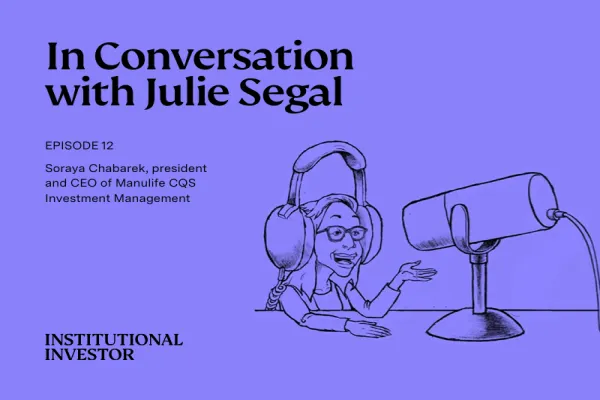When Bob Kelly became chairman and chief executive of Mellon Financial last February, the affable Nova Scotian worked overtime pledging his love for all things Pittsburgh -- and with good reason. Insecurities run deep in the Steel City. The same month that Kelly took the helm of Mellon, another local corporate icon, metals giant Alcoa, moved its headquarters to New York, sparking outrage.
So Mellon's December 4 announcement that it would merge with Bank of New York only confirmed Pittsburghers' worst fear. Though the $16.5 billion deal makes Kelly, 52, the CEO of a much larger company, it also moves the headquarters to Manhattan. One letter writer to the Pittsburgh Post-Gazette addressed Kelly directly, saying, "Congratulations Mr. Kelly, you've made your move . . . you're another out-of-towner to use another Pittsburgh-built corporation to make your way to the Big Apple."
Fortunately for Kelly and his BoNY counterpart, Tom Renyi, 60, investors' reaction was more enthusiastic. On the day the transaction was announced, each company's share price jumped: BoNY's by 17 percent, Mellon's by 7 percent.
The new Bank of New York Mellon Corp. will combine two of financial services' most venerable names to create the world's top asset-servicing shop, with $16.6 trillion under custody, leapfrogging current No. 1 JPMorgan Chase, which has $13 trillion. "They're now the biggest player in a growth industry where the winners are those with scale," says Richard Bove, a Lutz, Floridabased financial strategist with investment bank Punk Ziegel & Co. The new entity also will be a top ten player in asset management, with more than $1.1 trillion.
The deal almost didn't happen. In September, Kelly was reported to be plotting an acquisition of Boston-based MFS Investment Management when Renyi reached him by phone in London. "Gee, Bob, if you do that transaction, it could tie you up for a few years," Kelly recalls Renyi saying. "We'd like you to think about merging with us." Says Renyi, who will be executive chairman of the new entity for 18 months, "It was obvious both companies were headed down the same path, and I wanted to make sure he put us into his calculus."
Now the trick is integration. Kelly, who in 2001 as CFO of First Union engineered its widely praised $14.6 billion merger with Wachovia, expects the task to take at least 30 months.
Institutional Investor Contributor John Engen talked with Kelly in Pittsburgh and Renyi in New York in separate phone interviews a week after the deal was announced. Excerpts from the wide-ranging conversations follow.
Institutional Investor: What kind of response are you getting to the deal?
Kelly: Terrific. The reaction from shareholders has been fantastic. No one doubts the strategic rationale. The biggest questions are, "How are you going to integrate these two companies?" and "How are you not going to lose customers?"
Renyi: We're getting positive reactions from virtually all of our constituencies. It's very satisfying to see it endorsed so vividly by the marketplace.
Some people in Pittsburgh don't seem too happy. What does this mean for the city?
Kelly: The reality is that we are in a period of global consolidation in financial services, and New York is the financial capital. We're going to be creating [up to 2,000 back-office] jobs here over the long term, and I think that is a wonderful outcome in exchange for the loss of a head office. What we've promised is not contrived. It makes good business sense: We have better retention of people here, they cost less to employ, and our rental rates are one third those in New York or London.
Talk about the strategic rationale. What exactly are you creating?
Renyi: Both organizations had the same underlying view of using asset servicing [the business of processing transactions and moving funds around for money managers] as a distribution network for asset management products. But they were almost mirror images of one another. Bank of New York had developed a superior distribution network, yet we needed to build our asset management business. Mellon had created an exceptionally strong asset management franchise but needed to enhance its distribution. Through this combination we were able to effectively get to where each of us wanted to be -- immediately, with the stroke of a pen.
What is the competitive advantage?
Kelly: The reality is that in the asset-servicing business, scale matters. There is a bit of a war going on to produce more-sophisticated products and services, because our customers are demanding them as they get into more-complex products. We'll be able to invest once instead of twice in these new products and expand into new countries just once.
Does increased scale give you some pricing power?
Kelly: It's inevitable. Prices have been coming down in our industry for years, and over time things will be even more price-competitive. Frankly, should any competitor try to get into a price war with us, it's a battle we will win. It's a little bit like what Ronald Reagan said to Mikhail Gorbachev in the '80s: "If you try to spend your way to victory, we'll bury you."
What are the risks in this deal?
Kelly: The risks are twofold. First, I want to maintain best-in-class business-as-usual activities in the existing companies so we don't lose momentum. And we need to ensure best-in-class integration so nothing bad happens to our customers and we get all the revenue and expense synergies we think we can get.
Where does the growth come from?
Renyi: One of the principal cross-sells here is marketing asset management product into the securities-servicing distribution network. But we will also be able to improve the margins in asset servicing by internalizing some of the offerings.
Why do this deal now?
Renyi: I've long espoused the view that consolidation would be beneficial to shareholders, given the profit dynamics of the industry. And I've always wanted to be a catalyst in that consolidation. We worked through a lot of permutations and combinations and felt this one was clearly the most rewarding.
Mr. Kelly, do you agree that more consolidation is coming?
Kelly: It's not clear to me. Intuitively, one would think so, but the stars and the moon have to line up in terms of timing, cultural and strategic fit, product mix and succession planning.
What are your thoughts about moving to New York?
Kelly: I had an office at 100 Wall Street once [integrating former employer TD's 1996 acquisition of Waterhouse Investor Services], but I've never lived there. The shame of all this is that my wife [Rose] and I literally moved into our home last week. She's amazingly tolerant. I definitely married up.





